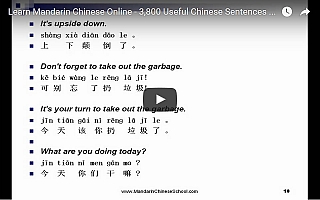고정 헤더 영역
상세 컨텐츠
본문

R/ChineseLanguage DiscordAbout UsThis is a community for people studying or teaching Chinese - or even if you're just interested in the languages of China. Discussion of all Chinese languages/dialects is welcome!Please post interesting links, language learning advice, or questions!
Character/Word LookupType grave accents around characters and words to look up their readings and meanings.`文` / `語言` / `国际化` / `一字千金`Community RulesPlease take a moment to familiarize yourself with.If you're seeking a translation, please post your question in our biweekly translation thread. It's stickied on our front page.
Learning ChineseOur Community.Resources.Apps.Related CommunitiesLanguages.Media/Culture.Regions.Other. Developer of ChineseLevel here (thanks @NielDLR)Yeah, the current version of ChineseLevel is totally outdated, and it's been broken for a while. Instead of just constantly patching the old version, I've been spending some free time here to work on a new version, that will hopefully be more useful, but it's not quite done yet, unfortunately. So you can check updates for that.In the meanwhile, I can hopefully help the OP by recommending a couple of places to find sentences and the like, many of which I'm using for the new version of the ChineseLevel site:. a collaborative effort to collect translated sentences in loads of languages, one of which is Chinese. They have a pretty extensive set, and the ability to search by word.
Chinese Sentences Dictionary
is pretty good for getting Chinese subtitles of movies and TV shows, if you can figure how to navigate through the site. For that matter, I've heard good things about for learning spoken Chinese from video. If you happen to be a developer, you can use this cool Ruby library for downloading example sentences for your vocab list:. And then, yes, Jukuu.com isn't too bad, but I find their sentences to be extremely (and unnecissarily) technical most of the time. Probably due to the sources they use for gathering the sentences.Hope that helps!

Everyone’s reason for learning Chinese is different, from going to China for business, moving to Taiwan to teach English, or just to give yourself a challenge. No matter what your reason is, one thing remains the same – before you can progress you need to get the basics down first, as it’s the basics that will allow you to get by in your daily life using only Chinese. Luckily the Taiwanese Ministry of Education provides a free book for learning basic Chinese called.Speak Mandarin in 500 Words differs from most text books in that it’s specifically aimed at Mandarin Chinese for every day tasks and experiences:This reader has 30 lessons and each lesson has four units: “Text”, “Words and Phrases”, “Review”, and “Extended Practice”. The Text Unit, is practice-oriented, and its materials are drawn from daily life. The materials range from self-introduction to family, school, communication, and daily dialogues.The lessons included in the book cover basic situations like greeting people in the morning, asking where to buy something and making telephone calls. While these may not seem the most exciting topics they are essential ones, so it’s worth keeping this book around and practicing a few chapters now and then as a supplement to your main studies.The great thing out the book is that it’s available in many languages, not just English.

Portugese, French, Thai, Indonesian, German and Spanich version are available. There is one caveat though – the book is only available in Traditional Chinese and not Simplified. Though, as Pinyin and Zhuyin pronunciations are included this shouldn’t be an issue for people who are learning Simplified and this might even be a good way to start learning some key words in Traditional Chinese.Download.




